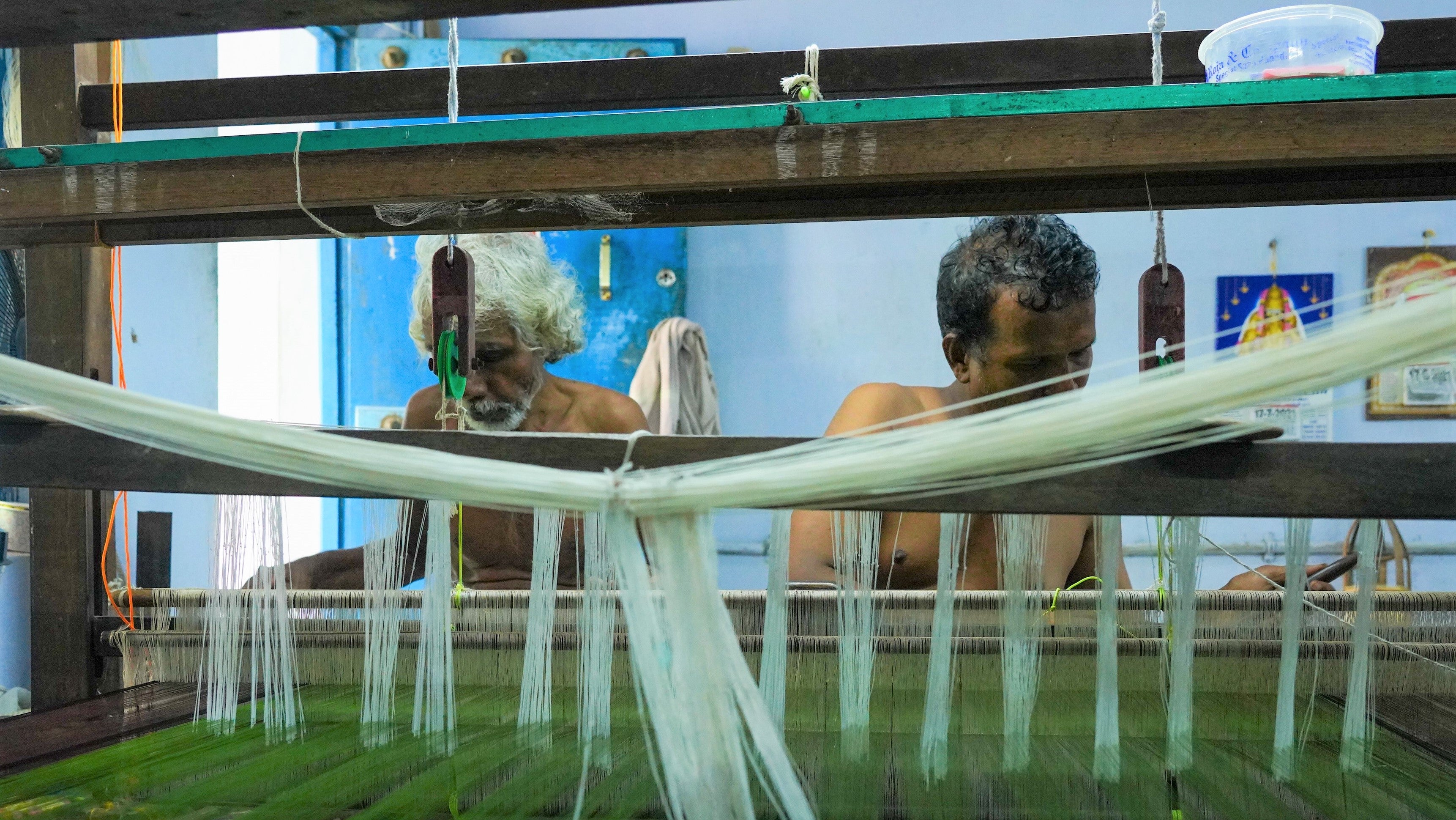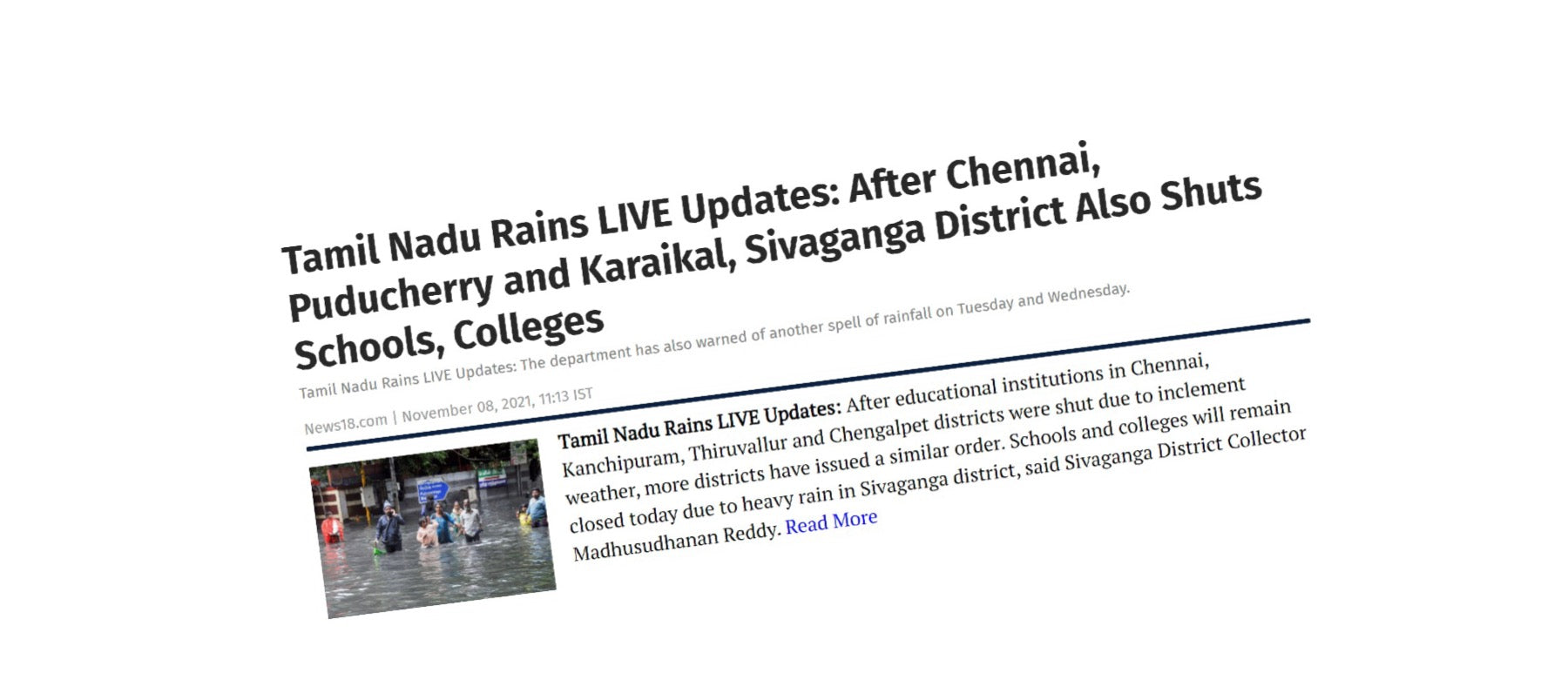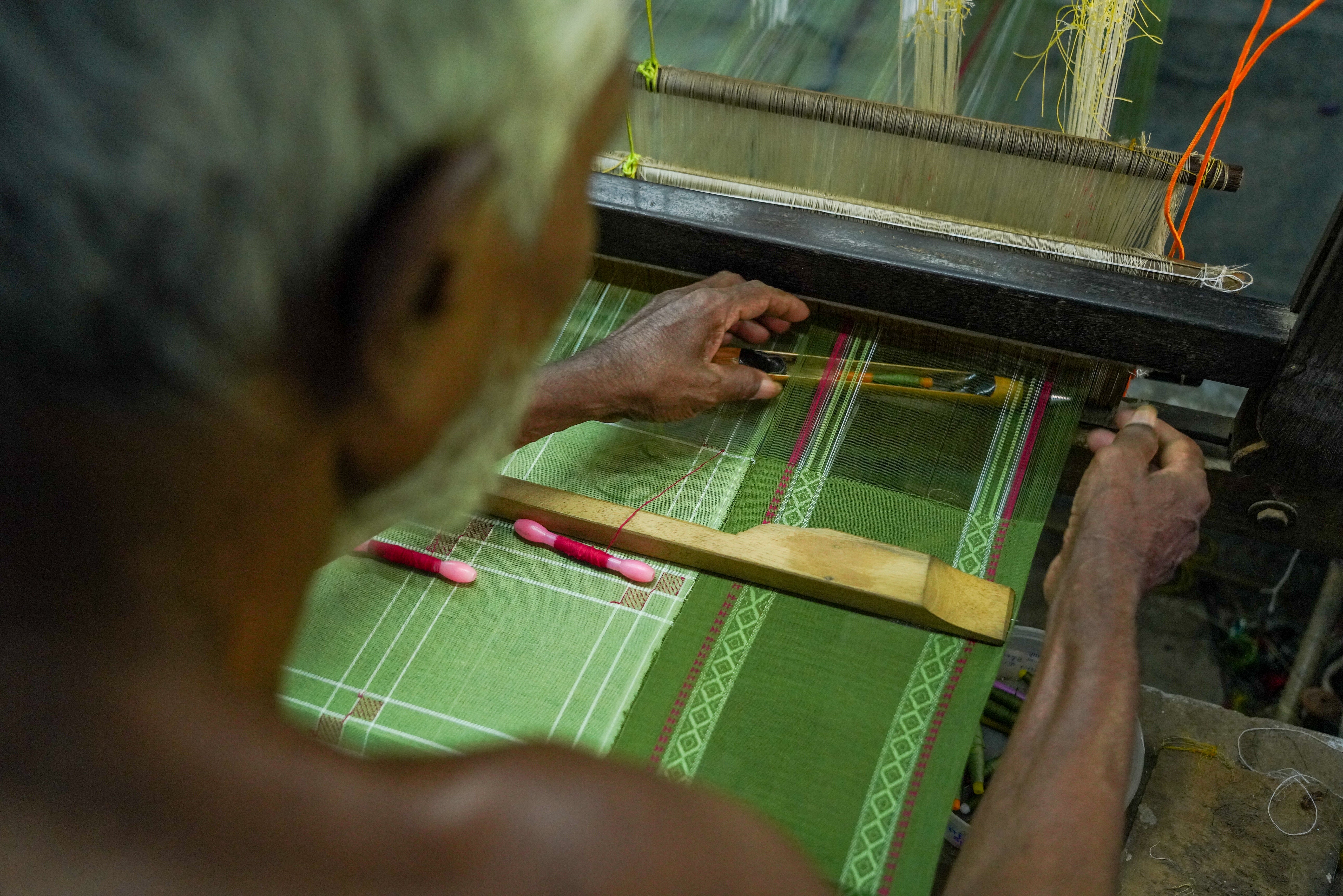
In the news
CNBC TV18
ECONOMY | JANUARY 24, 2022, 06:50 PM IST
Smaller weddings, tighter budgets derail Kanchipuram’s silk industry, eyes now on Budget 2022
By Jude Sannith | Jan 28, 2022, 05:18 PM IST (Updated)
Mini
Smaller weddings often with tighter budgets have become an undeniable reality for India today. In Tamil Nadu, these changes have had a compounding negative impact on an industry that relies on wedding fervour for its very survival - the Kanchipuram's silk-saree business.
There's a noticeable absence of bustle on Kanchipuram's Gandhi Road, home to the town's famous Kanjeevaram silk houses. It doesn't matter that it's the wedding season. Smaller weddings and tighter budgets have become an undeniable reality of these post-COVID times, and its impact on Kanchipuram's silk saree retail business is for all to see.
Near-empty saree showrooms at Kanchipuram thanks to two years of restrictions on weddings, the debilitating Tamil Nadu floods in November, and a spike in COVID-19 cases just before the state's Pongal festivities have resulted in festive season sales ending up 30 to 40 percent lower, year-on-year.
"Our sales are down 40 percent year-on-year," says P Thanigaiarasu, Manager at Linku Sah Silks, one of the showrooms on Gandhi Road, "No showroom on Gandhi Road has seen decent Pongal or even Christmas sales this season."
While sales are seasonal, the continuous restrictions and the pandemic's impact on incomes have dealt a death blow to business. Retailers say even average spend-per-customer is down significantly, especially as the Tamil custom of buying sarees and other silk apparel for family and select wedding guests is taking a backseat.
"People have begun closing wedding purchases after buying just one saree," says N Ramesh, Partner, Sri Mahalakshmi Silks. "Customers buy a saree for the bride, and end up giving cash gifts to relatives since they (relatives) probably won't be attending the wedding in person anyway."
However, if COVID-19, plummeting sales and fewer footfalls weren't bad enough for Kanchipuram's silk saree showrooms, they have begun dealing with rising input costs too. In December, the price of mulberry silk surged from 4,200 rupees to 6,500 rupees per kilogram, in effect applying pressure on price tags at a time when retailers were hoping to discount prices in a last-ditch attempt to boost sales.
A couple of years ago, discount notices at showrooms were virtually unheard of in a town that saw lakhs of buyers flocking in to buy sarees for festivals and weddings. Retailers say they do not have a choice in the present situation and that they would rather offer discounts now and live with margin pressures, than shut shop completely.
"This is a Samudrika pattu; we are selling it for Rs 1,333 since we have an offer going on," says J Jalal, Partner at Jalal Silks & Sarees, while he shows off a newly woven silk saree. "Before the pandemic, we were selling the saree for Rs 1,600," he adds, "Now, we have reduced prices. Earlier, we were making a profit of 15 to 20 percent. Now, we are selling for profit margins of 10 percent or 5 percent to increase customers and induce people to buy more."
These troubles are not only at the retailer level, but have trickled to the bottom of the pyramid. The town's weaving community is hanging by a thread. Today, weavers hope the union budget will bring with it procurement subsidies and interest-free loans, if any other form of direct cash incentive is not possible.
"If we get access to interest-free loans of at least 10,000 rupees per weaver, it will end up being a huge relief all of us," says M Thirunavakarasu, a silk weaver in the town.
Budget or not, weavers say a GST waiver is the need of the hour. Handlooms are taxed at 5%, which has become a cause of heartburn over the years. Calls for a complete GST waiver have turned louder now than before. "If GST is waived off, buying silk will end up becoming cheaper, but now any spike in prices ends up being blamed on GST," says P Baskaran, another silk weaver in the town.
Weavers and traders in Kanchipuram agree that the temple town's silk saree business is today a pale shadow of its former self, and COVID-19 may not be the only reason why. Their last ray of hope rests on Budget 2022 and its potential ability to take the town's mainstay industry from the ICU.
https://www.cnbctv18.com/economy/budget-2022-expectations-heres-what-kanchipuram-silk-saree-industry-wants-from-fm-sitharaman-12230332.htm




Leave a comment
This site is protected by hCaptcha and the hCaptcha Privacy Policy and Terms of Service apply.